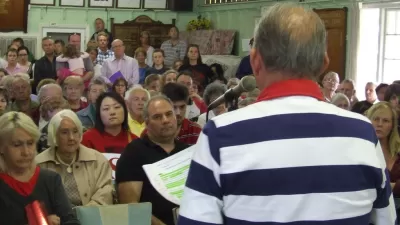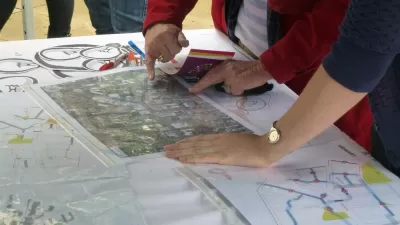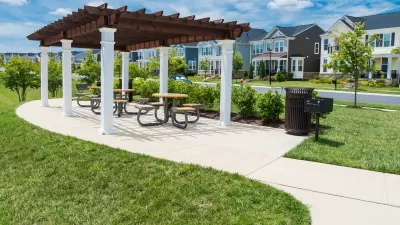A professor of planning calls out the emotional abuse facing planners—from professional colleagues in related fields, from elected officials, and from the public.

Lisa Schweitzer, associate professor of urban planning at the University of Southern California's Sol Price School of Public Policy, writes on an "understudied and underdiscussed" phenomenon facing professional planners: the emotional abuse planners face while doing their job.
Despite the mythology of planners as powerful, Robert Moses-like figures in the landscape of city building, planners don't actually wield much power, according to Schweitzer.
That means planners and planning make good scapegoats for the other professions and for people angry at state/capital/community action. Planners put up with this all the time, from engineers who pull out the science status card to developers who pull out the economics education card to architects who pull out the design education card.
More than just facing bullying from the other professions listed there, Schwietzer also acknowledges the abuse dished out to planners from both elected officials and the public.
The number of times I’ve had electeds use public meetings to score points off planners…I can’t even count. From dismissing whatever the planner has presented as “socialism” to suggesting in public and in front of the press (with no consequences) that a planner is on the take, I’ve pretty much seen it all.
Then the public, blaming planners for everything in sight because they are less intimidating targets than the electeds, who, chances are, are the driving force behind whatever project or idea it is that is pissing off members of the public.
Schweitzer raises these points to acknowledge that abuse, instead of continuing to ignore it, and to express pride for the planners working hard to make their communities "become better, nicer, more resourced, more just…and just more."
FULL STORY: Let’s talk about the emotional abuse of planners

Planetizen Federal Action Tracker
A weekly monitor of how Trump’s orders and actions are impacting planners and planning in America.

Map: Where Senate Republicans Want to Sell Your Public Lands
For public land advocates, the Senate Republicans’ proposal to sell millions of acres of public land in the West is “the biggest fight of their careers.”

Restaurant Patios Were a Pandemic Win — Why Were They so Hard to Keep?
Social distancing requirements and changes in travel patterns prompted cities to pilot new uses for street and sidewalk space. Then it got complicated.

Platform Pilsner: Vancouver Transit Agency Releases... a Beer?
TransLink will receive a portion of every sale of the four-pack.

Toronto Weighs Cheaper Transit, Parking Hikes for Major Events
Special event rates would take effect during large festivals, sports games and concerts to ‘discourage driving, manage congestion and free up space for transit.”

Berlin to Consider Car-Free Zone Larger Than Manhattan
The area bound by the 22-mile Ringbahn would still allow 12 uses of a private automobile per year per person, and several other exemptions.
Urban Design for Planners 1: Software Tools
This six-course series explores essential urban design concepts using open source software and equips planners with the tools they need to participate fully in the urban design process.
Planning for Universal Design
Learn the tools for implementing Universal Design in planning regulations.
Heyer Gruel & Associates PA
JM Goldson LLC
Custer County Colorado
City of Camden Redevelopment Agency
City of Astoria
Transportation Research & Education Center (TREC) at Portland State University
Camden Redevelopment Agency
City of Claremont
Municipality of Princeton (NJ)





























